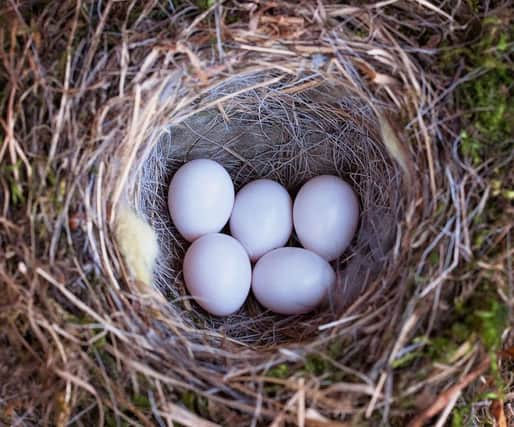Birds beating global warming by adjusting their egg-laying times


A study of tits, flycatchers and chaffinches has revealed that British woodland birds use spring temperatures to decide when conditions are ideal for nesting, helping to ensure chicks get the best possible start in life.
The timing of egg-laying is crucial, as it affects how much food is available to chicks after they hatch, scientists say. Chicks need to hatch at a time when their main sources of food are plentiful – hatching outside this period reduces their chances of survival.
Advertisement
Hide AdAdvertisement
Hide AdFor more than 50 years, birdwatchers have recorded the first egg-laying dates of British birds and submitted them to the BTO.
The researchers combined 100,000 observations of laying date for blue tits, great tits, chaffinches and pied flycatchers with daily temperature records covering the same period.
They found that all four species are able to alter their egg-laying times in response to spring temperatures and that this flexibility may enable the birds to continue to lay at the optimum time as climate changes. When spring temperatures were low, birds delayed egg-laying by several days. Warmer weather caused them to begin nesting earlier in the year..
The researchers found the birds appear to be “well equipped” to cope with seasonal temperature changes brought about by climate change.
Evolutionary ecologist Dr Ally Phillimore, of the university’s school of biological sciences, said: “We know that birds use spring temperatures to adjust the timing of egg-laying, and the big question is whether this flexibility will allow birds to lay at the right time under future warmer conditions.”
The researchers warn that their conclusions are sensitive to how the spring “temperature cue” is defined, and further research is needed to make more accurate predictions about how birds may adapt to climate change.
But the study, published in the journal Global Change Biology, suggests that adaptability will ensure survival in a changing world.